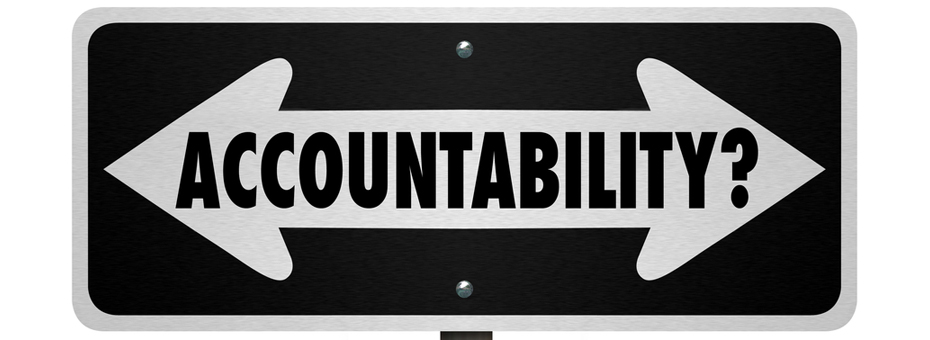Why does that word “accountable” make us cringe? Well, when was the last time you heard: “Who’s accountable for this success?” Over time, accountability has developed a negative connotation. No wonder people avoid it like the plague! But the truth is: we want accountable, responsible employees that have our company’s best interests in mind and are committed to continuous improvement.
Talk about accountability, and you hear, “It’s not my job,” “It’s not my responsibility,” and “It’s not my fault,” The question is: how do we help people want to become accountable? In my experience, you can’t ask people to be accountable in today’s culture without training them in what accountability means. It’s a sad fact that corporations are now realizing that they must teach adults how to become responsible team members. Most people think: “What’s in it for me?” at work. It doesn’t help that businesses are asking employees to do so much more with less – less training, communication, and support; which can put even the most capable, responsible employee on the defensive.
How do we turn the tide? Leadership must first look to themselves to model accountability for staff. As Emerson once said: “Your actions speak so loudly that I cannot hear what you say.” Gone are the days of: “Do what I say, not as I do.” People follow their leader’s actions and individuals often underestimate the power of their own influence on others. A leader who does not model accountability for their team members cannot possibly ask this of their employees.
I’m reminded of a book The Oz Principle by Connor, Smith, and Hickman, which gives a comprehensive explanation of what “Below the Line” behavior looks like (unaccountability) and outlines a step-by-step approach to get “Above the Line” into accountability. To the authors, accountability is about “A personal choice to rise above one’s circumstances and demonstrate the ownership necessary for achieving desired results.” I agree, but it is the responsibility of the organization (senior leadership) to create a safe environment to communicate new ideas, try new things, and make mistakes. In the broader sense, accountable organizations must be transparent about their strategic objectives.
In the article, “Can You Say What Your Strategy Is?” (Harvard Business Review), David Collis and Michael Rukstad tell us, “[Companies] fail to appreciate the necessity of having a simple, clear, succinct strategy statement that everyone can internalize and use as a guiding light for making difficult choices.” Imagine if everyone in your company was unclear or had conflicting perceptions of the strategic vision and were working at cross-purposes? It is necessary not only to create the culture of accountability in order to improve your organization, but also to set up clear guidelines that establish a true north for employees to make educated decisions.
One business I worked with realized, after six months of marginal success in the early stages of their lean initiative, that culture played an enormous role in continuous improvement. No surprise there! A few months later, they also came to the conclusion that most of the company languished in a well-established victim cycle. This victim mindset, coupled with a lack of clear strategic vision from leaders, lay the groundwork for a chaotic and stressful work environment. In order to overcome these cultural hurdles, leadership decided to have accountability training as a mandatory event to put them back on track. They used the book, The Oz Principle, to do so.
Part of lean leadership standard work is continuous learning. This ongoing education must include accountability training. As this organization’s leadership team had their eyes opened through accountability training via the Oz Principle book, managers began to understand how to coach their teams out of the victim cycle. People began to ask: “What else can I do to achieve the desired result?” (instead of coming up with excuses why a goal wasn’t met and pointing fingers). Through this new sense of accountability, improvement efforts not only got more attention, but people were able to sustain them. And to further enhance this new community mindset at the workplace, leaders helped direct efforts to support the strategic vision by creating awareness of the company’s focus through visuals.
All of the truly successful “lean” companies that I’ve worked with have a demonstrated this high level of accountability as well as a very transparent, concise strategic vision that is clearly connected and communicated throughout the rest of the organization. Some top lean businesses use an A3 Strategy Deployment matrix to communicate strategy and gain alignment at all levels. Regardless of the tools used, there is always a visual representation of the strategic vision throughout a successful lean organization and every employee is engaged.
This potent combination of organizational accountability and clear strategic vision is what creates a sense of community, which is far more supportive and productive than the “every man for him/herself” attitude we encounter all too often.





